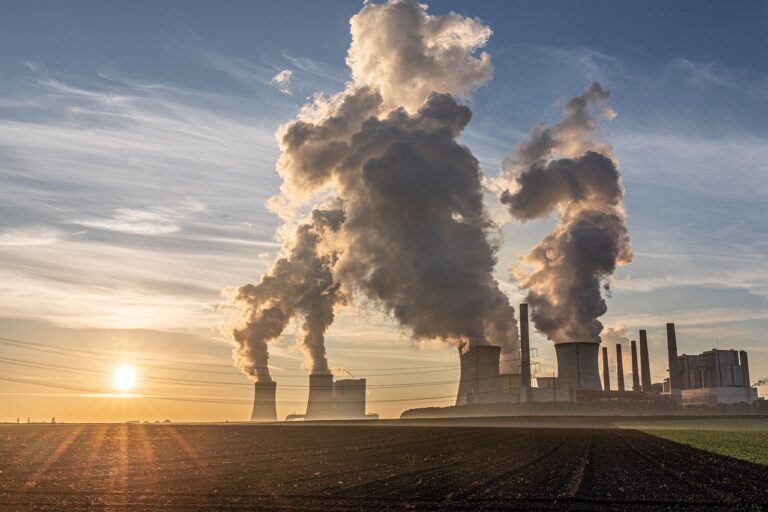The Global Carbon Project (GCP) is an internationally renowned initiative aimed at understanding, quantifying, and monitoring carbon emissions and their impact on the Earth’s climate.
GCP is an organization that aims to estimate the total amount of greenhouse gas emissions as well as their origins. It was founded in 2001, and its initiatives include complementing work on urban, regional, cumulative, and negative emissions, as well as global budgets for the three main greenhouse gasses: carbon dioxide (CO2), methane (CH4), and nitrous oxide (N2O).
With the growing concern over climate change and its implications for our planet, the GCP plays a vital role in providing accurate and up-to-date data on carbon emissions to support informed decision-making and policy development worldwide. This article delves into the significance of the Global Carbon Project and its contributions to our collective efforts for a sustainable future.
Table of Contents
Understanding carbon emissions
Carbon emissions, primarily in the form of carbon dioxide (CO2), are released into the atmosphere through various human activities. Including burning fossil fuels, deforestation, and industrial processes. When carbon emissions are released into the atmosphere, they act as a greenhouse effect, trapping heat and causing the Earth’s temperature to rise.
This phenomenon is known as global warming, and it leads to climate change with various consequences, such as rising sea levels, extreme weather events, disruptions to ecosystems, and impacts on human societies and economies.
The GCP was established to address the need for comprehensive and reliable data on carbon emissions to understand their impact on the planet.
Objectives of the Global Carbon Project
The Global Carbon Project has three primary objectives:
1. Monitoring carbon budgets
The GCP aims to monitor the global carbon budget. Which involves assessing the sources and sinks of carbon dioxide, such as forests and oceans, to understand the balance between emissions and removal from the atmosphere. This information is crucial for evaluating the effectiveness of climate change mitigation strategies.
2. Providing accurate emission data
The GCP collects data from various sources. Including national inventories, satellite observations, and ground-based measurements, to estimate carbon emissions at global, regional, and national levels. These data sets are standardized and regularly updated, providing policymakers and researchers with a reliable reference.
3. Enhancing scientific knowledge
The GCP fosters collaboration among scientists, policymakers, and stakeholders worldwide. By encouraging research and knowledge exchange, the project contributes to a deeper understanding of carbon emissions and their implications for climate change.
It also aimed to foster international collaboration among scientists and researchers to address carbon-related challenges. And, to develop strategies for sustainable carbon management.
Therefore, the Global Carbon Project aims to construct a comprehensive representation of the global carbon cycle. Thus encompassing both its natural and human elements and examining their interactions and feedback loops.
Read also: The 3 countries that are already carbon-negative in 2023
Key findings and reports
Over the years, the Global Carbon Project has released several reports that highlight key findings and trends in carbon emissions. These reports have been instrumental in shaping international climate policy and fostering a global dialogue on climate change.
The annual “Global Carbon Budget” report, for instance, provides a comprehensive analysis of CO2 emissions, attributing them to specific sectors and regions.
Contributions to Climate Policy
The GCP’s data and reports have played a crucial role in shaping climate policies and international agreements. Policymakers use the project’s findings to assess the progress of climate commitments. And, design effective strategies to meet emission reduction targets.
Additionally, the project’s data has been incorporated into landmark agreements such as the Paris Agreement. Thus facilitating a global effort to combat climate change.
Challenges and future directions
While the Global Carbon Project has made significant strides in advancing our understanding of carbon emissions, it continues to face challenges.
1. Policy and political challenges: Implementing effective policies and getting global consensus on climate action can be difficult due to varying interests and priorities among countries.
2. Technological limitations: Transitioning to low-carbon technologies at a global scale requires significant advancements and investments.
3. Economic impacts: Shifting away from fossil fuels and high-emission industries may have economic consequences and can lead to job displacements.
4. Behavior change: Encouraging individuals and industries to adopt sustainable practices and reduce carbon footprints can be challenging.
5. Monitoring and reporting: Ensuring accurate and transparent reporting of carbon emissions from different countries and sectors is essential for tracking progress and holding nations accountable. Gathering precise and timely data from various sources can be complex, especially in regions where data collection infrastructure is limited.
6. Adaptation and resilience: Preparing for the impacts of climate change and building resilience in vulnerable regions is crucial. Moreover, as the climate crisis evolves, the GCP must adapt its methodologies and monitoring strategies to address emerging challenges.
Global Carbon Projects are more critical than ever in securing a healthier planet
The Global Carbon Project stands as a pillar of knowledge and collaboration in the global fight against climate change. By providing comprehensive and standardized data on carbon emissions, the GCP supports evidence-based decision-making, fosters international cooperation, and empowers nations to take effective action towards a sustainable and low-carbon future.
As the world grapples with the urgency of climate change, the insights and initiatives of the Global Carbon Project are more critical than ever in securing a healthier planet for generations to come.
Read also: What is carbon offsetting? The practical approach to combat climate change












